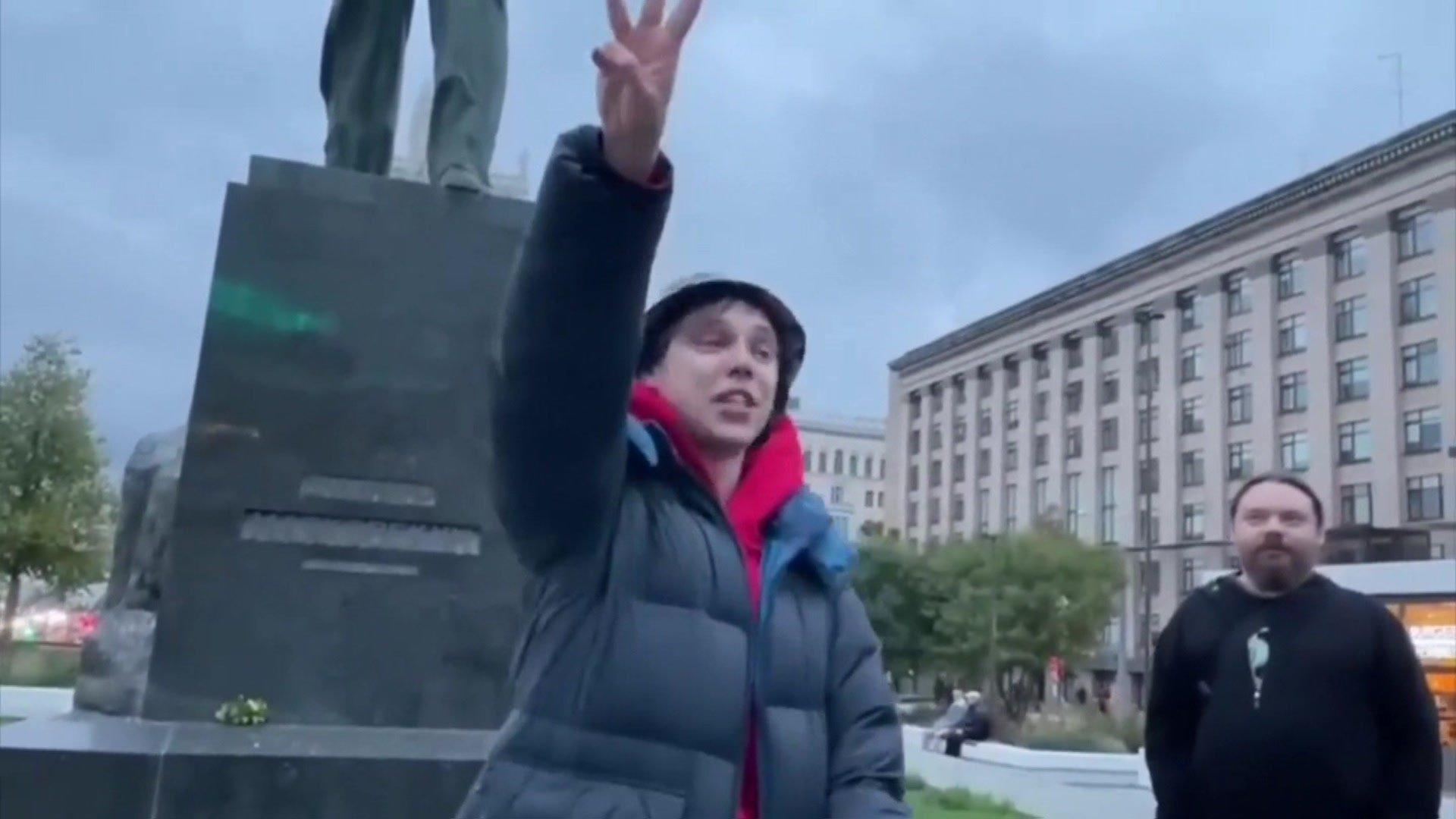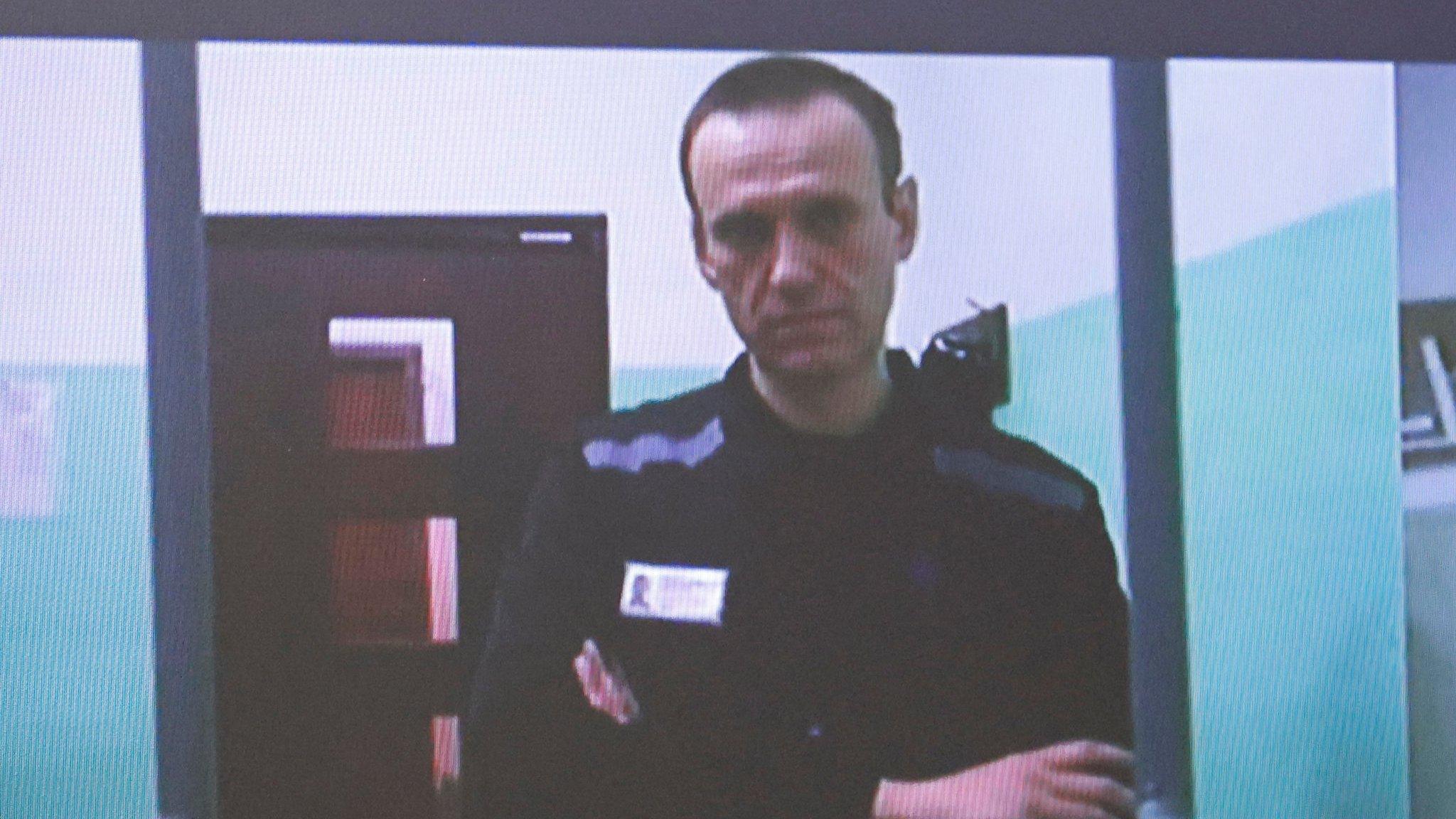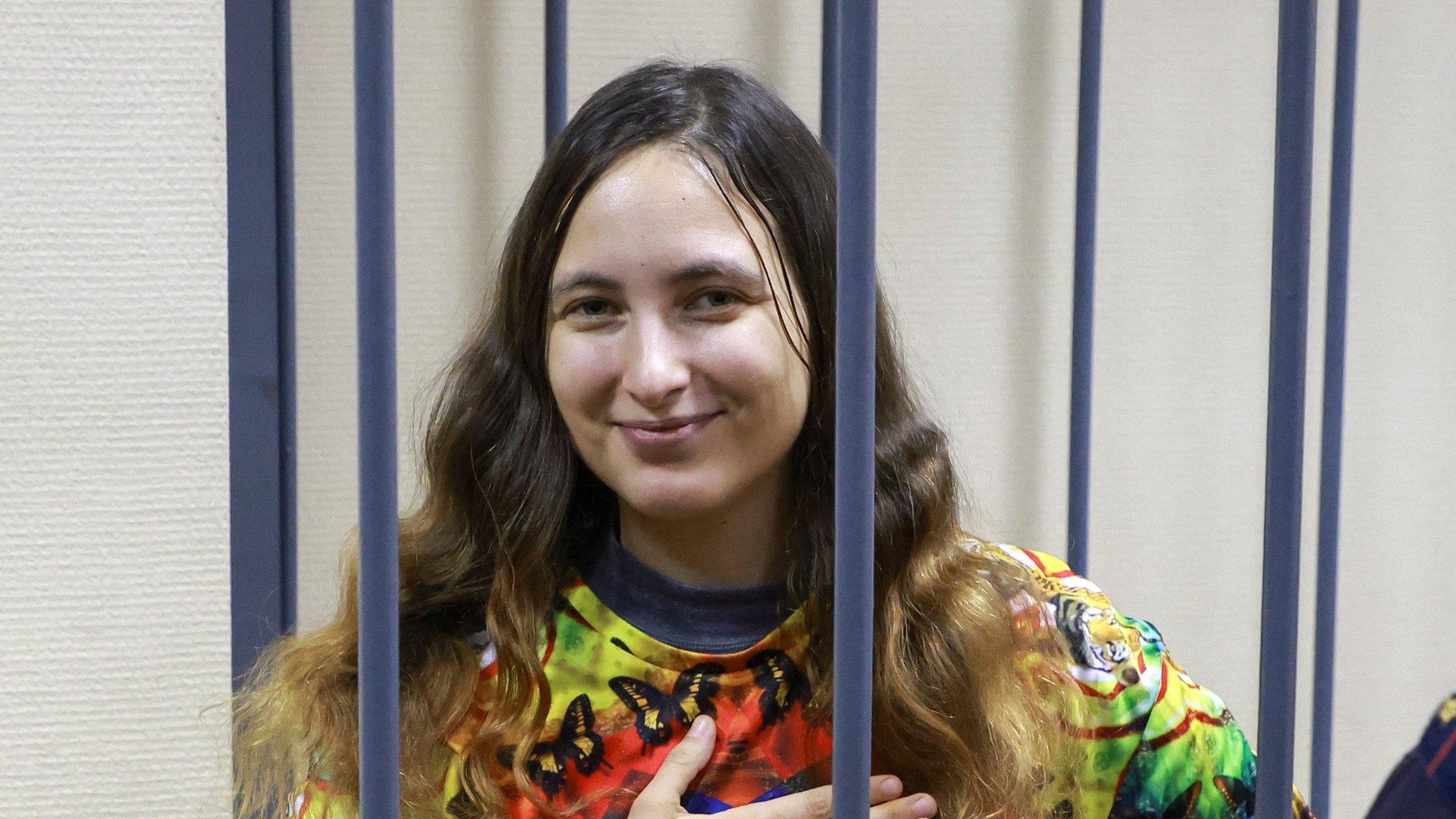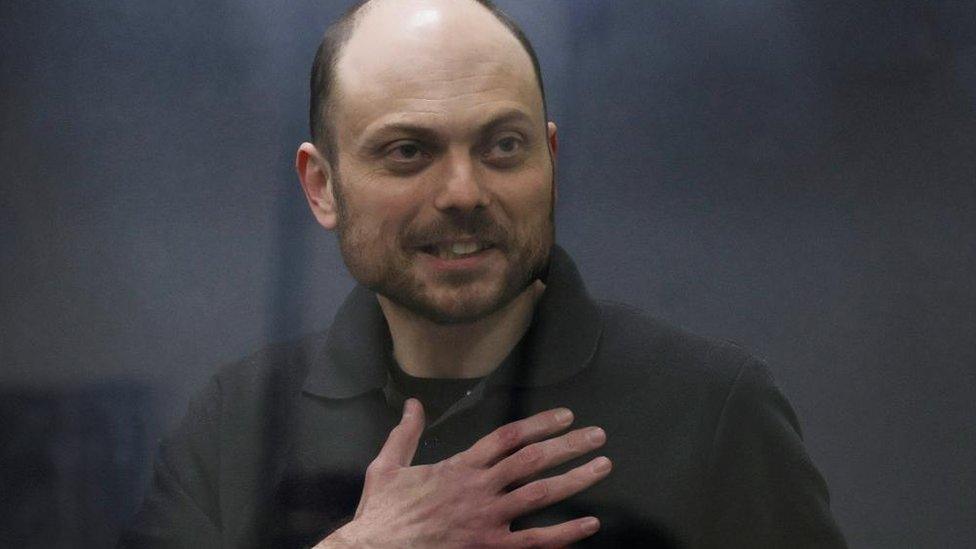Russian poets get jail sentences for anti-war poetry reading
- Published

Artyom Kamardin read a poem criticising Russia's war in Ukraine in September 2022
Two Russian poets have been handed long jail sentences for taking part in a reading of anti-war poems in Moscow.
A Moscow court gave Artyom Kamardin seven years and Yegor Shtovba five and a half years for "inciting hatred" against Russian troops and making "appeals against state security".
Both had pleaded not guilty.
The pair are the latest to be sentenced under what rights groups have condemned as an unprecedented crackdown on dissent in Russia.
A third poet who had taken part in the poetry reading, Nikolai Dayneko, was given a four-year sentence earlier this year after pleading guilty and co-operating with the investigation.
On 25 September 2022, Kamardin, 33, recited a poem at the Mayakovsky Readings - a poetry event that has attracted dissidents and activists to Triumfalnaya Square - formerly Mayakovsky Square - in central Moscow since the 1950s.
Shtovba, who is 23, also attended the event, held following Russian President Vladimir Putin's announcement that month of a "partial mobilisation" campaign for the war in Ukraine.
Kamardin read out a poem which crudely criticised Russian imperialism in southern Ukraine and included the words "Glory to the Kievan Rus" - a 9th-Century Slavonic state that had Kyiv as its capital.
At the time of his arrest, his wife Alexandra Popova told the BBC that police had stormed the couple's flat the following day.
"They dragged me across the floor by my hair and started supergluing stickers to my face. They threatened to glue my mouth up," Ms Popova said.
She said that she heard her husband being beaten in another room, and that police "were talking about raping him".
[The police] filmed everything they did to Artyom. They grabbed me by the hair and showed me a photo of him naked and beaten up, covered in blood

Kamardin's lawyer said police had raped his client with a dumbbell before forcing him to record an apology video.
Ahead of the sentencing on Thursday, the two defendants made statements to the court.
Shtovba, 23, said the Mayakovsky Readings last year had been the first he had ever attended. He had not read a poem but had merely applauded the performances, he said, adding there was no evidence to prove he was guilty of inciting hatred against troops taking part in the Ukraine war.
Kamardin asked the judge to consider giving him a suspended sentence. He said judging someone for their opinions was an "all too common practice in today's Russia" and predicted that he would be found guilty "despite my complete innocence".
Supporters in the Moscow courtroom shouted "Shame!" as the sentences were read out, witnesses said.
Mayakovsky Readings have been held intermittently since 1958. In the 1960s, people would gather around the statue of poet Vladimir Mayakovsky and recite poems that were often critical of the Soviet Union.
Many organisers were accused of anti-Soviet propaganda and sentenced to several years in the gulags.
The group was revived in 2009 but suspended its activities in October 2022. The organisers said on Telegram that the ongoing "military censorship and mobilisation" made it unsafe for participants to continue gathering.
Russian President Vladimir Putin has overseen an unprecedented crackdown on domestic opposition in parallel with the full-scale invasion of Ukraine.
Last month Russian anti-war activist Sasha Skochilenko, 33, was sentenced to seven years in a penal colony for replacing supermarket pricing labels with anti-war messages.
Opposition activist Vladimir Kara-Murza was sentenced to 25 years in jail for charges linked to his criticism of the war in Ukraine, and Moscow councillor Alexei Gorinov was imprisoned for seven years for criticising the invasion during a city council meeting.
Scores of other critics of Mr Putin's rule have also ended up behind bars, with a marked uptick following the start of Russia's full-scale invasion of Ukraine in February 2022.
Related topics
- Published26 December 2023

- Published16 November 2023

- Published24 September 2023
